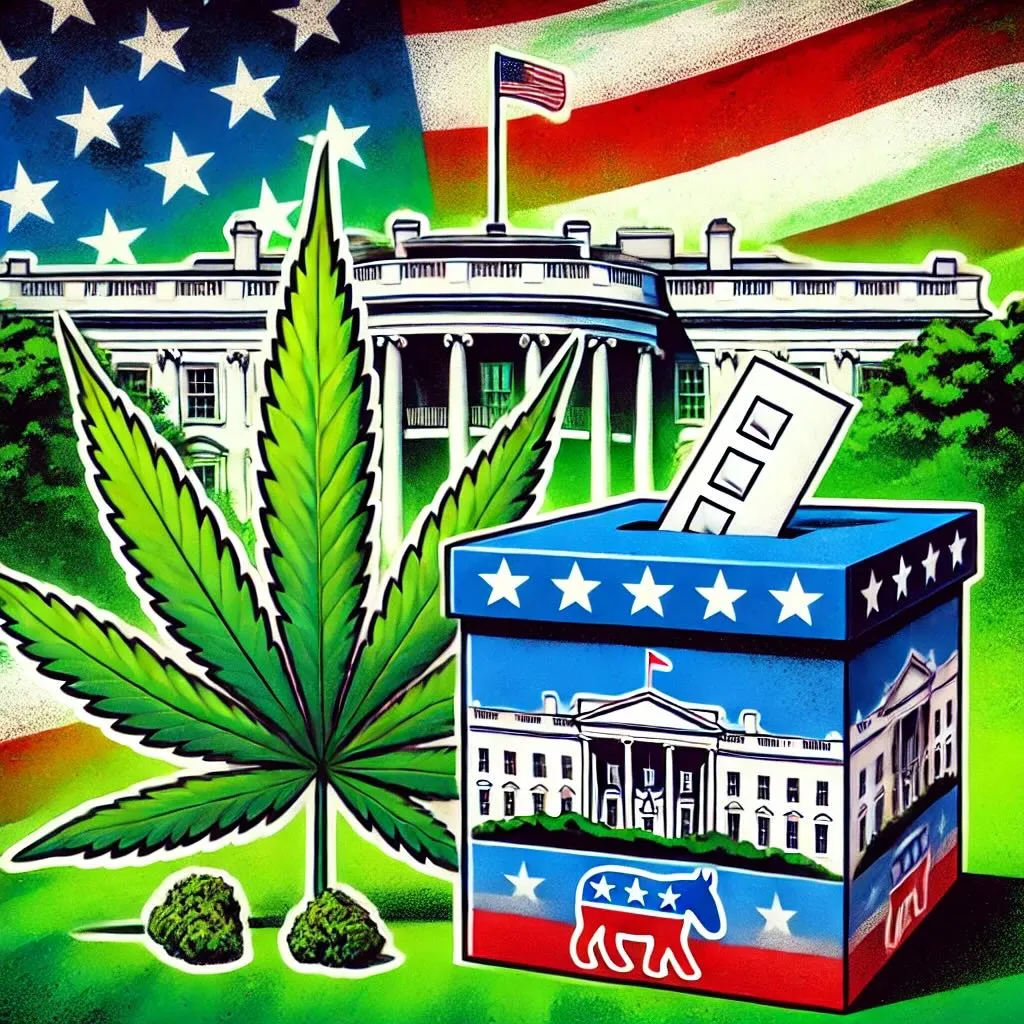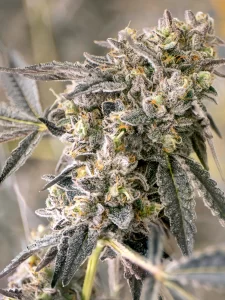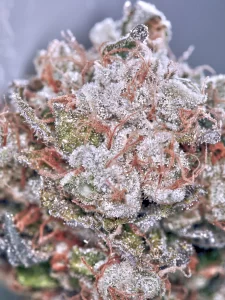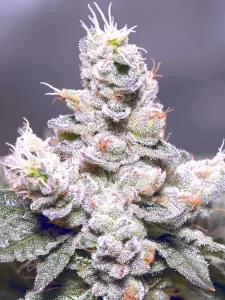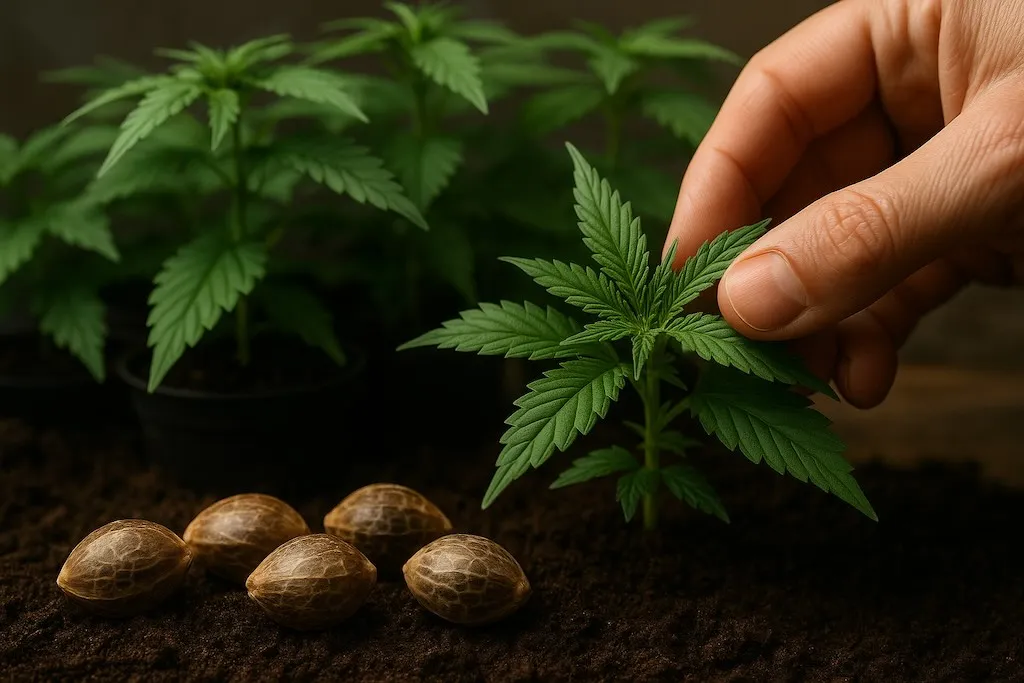Harris vs. Trump on Marijuana: What Could the Future Hold for the U.S. Cannabis Scene?
As the 2024 U.S. presidential election approaches, marijuana legalization remains one of the most hotly debated issues in American politics. On one side, there’s Kamala Harris, Vice President under the Biden administration, who has had a complex history with cannabis reform. On the other side stands Donald Trump, the former president seeking to return to the Oval Office, whose position on cannabis has been less defined, though many in the industry are curious about what his next moves could be.
For those invested in the future of the U.S. cannabis scene—whether you’re a professional in the industry, a medical patient, or a casual consumer—the policy direction each of these candidates takes will likely have profound consequences. To better understand what the future might hold, let’s dive into their records, rhetoric, and what we can anticipate from either candidate if they assume power in 2024.
Kamala Harris: A Reform Advocate or a Mixed Bag?
Harris’ Record on Marijuana
Kamala Harris’ relationship with cannabis reform is a bit like watching a plot twist in a movie you didn’t expect. Early in her career as Attorney General of California, Harris was tough on crime, and marijuana laws were no exception. During her time in this role, she didn’t earn a reputation as a friend to cannabis legalization. In fact, her office fought back against state efforts to loosen marijuana laws, and she avoided aligning herself with the early push for full legalization.
However, in recent years, Harris has shifted her stance significantly. Since joining the Senate in 2017, she has openly supported decriminalization and expungement of marijuana-related offenses. She was a co-sponsor of the Marijuana Justice Act, which aimed to federally decriminalize cannabis and expunge the records of those with previous marijuana convictions.
Her 2020 presidential campaign showed Harris embracing full legalization on the federal level, a stance that many marijuana advocates took as a sign of hope. During the campaign, Harris pushed for comprehensive reform, emphasizing the need for racial justice in marijuana policy. She highlighted how Black and Brown communities have been disproportionately affected by marijuana-related arrests and convictions, promising to work toward reversing that damage.
What Has Harris Done as Vice President?
As Vice President, Harris has had a less direct role in shaping marijuana policy, though she has aligned herself with President Biden’s cautious approach. During the 2020 election, the Biden-Harris campaign promised to push for decriminalization, expungement of past convictions, and the rescheduling of marijuana from a Schedule I to a Schedule II substance. While Biden has made moves to pardon individuals convicted of federal marijuana possession, significant steps toward full federal legalization or rescheduling have not yet been taken.
Some in the cannabis community have been disappointed that the Biden-Harris administration hasn’t been more aggressive in pursuing marijuana reform, particularly as public support for legalization continues to grow.
What Can We Expect if Harris Wins in 2024?
If Kamala Harris takes the reins in 2024, her presidency would likely push for broader cannabis reform than we’ve seen during Biden’s time in office. Harris’ recent record suggests she understands the complexities of marijuana legislation, especially when it comes to racial equity and criminal justice reform.
For industry professionals, Harris would likely advocate for full federal legalization, or at the very least, rescheduling cannabis to make it easier for companies to operate without fear of federal raids or banking restrictions. Harris has been a vocal supporter of fixing the financial barriers that cannabis businesses face, especially regarding the SAFE Banking Act, which would allow marijuana companies access to traditional banking services.
For medical marijuana patients, a Harris administration might offer expanded federal protections for cannabis-based treatments. If cannabis is rescheduled, medical research could expand rapidly, opening up new avenues for treatment and making it easier for doctors to prescribe cannabis.
For recreational users, Harris’ presidency could lead to the long-awaited federal legalization of marijuana, a move that would significantly reduce legal risks and expand access across the country. It’s safe to say that if Harris wins, the legal cannabis market could be poised for significant growth, particularly as federal restrictions ease.
Donald Trump: Unclear Intentions or Silent Strategy?
Trump’s Record on Marijuana
When it comes to Donald Trump’s stance on marijuana, we have far less to work with. Throughout his presidency, Trump was largely silent on the issue, neither strongly supporting nor actively opposing marijuana reform. He left much of the decision-making up to states, allowing the green wave of legalization to continue sweeping across the country without direct federal interference. In 2018, Trump signed the Farm Bill, which legalized hemp and its derivatives like CBD, providing some hope to cannabis advocates. But beyond that, his marijuana policy during his four years in office was mostly hands-off.
One area where Trump’s administration did draw the ire of cannabis supporters was with Attorney General Jeff Sessions, who had a notorious anti-cannabis stance. Sessions rescinded the Cole Memorandum, an Obama-era policy that discouraged federal prosecution of marijuana businesses operating legally under state law. Though the memo’s revocation didn’t lead to widespread federal raids on dispensaries, it created significant anxiety in the cannabis community.
Trump’s own rhetoric on marijuana has been mixed at best. While he has said he supports state-level legalization efforts and is “fine” with medical marijuana, he hasn’t taken strong leadership in pushing for cannabis reform. However, Trump has also suggested that legalizing recreational marijuana could lead to an increase in crime, which leaves his true stance on the issue somewhat ambiguous.
Trump’s Second Term: What Could We See?
A second Trump term could go in several directions. On one hand, Trump has a history of prioritizing states’ rights, so he might continue to let states dictate their own marijuana policies without interference. However, he hasn’t been as vocal about federal reform, so full federal legalization under Trump seems less likely than under Harris.
For industry professionals, the most likely outcome under Trump would be a continuation of the status quo—where cannabis businesses operate under a patchwork of state laws, still facing challenges with banking and interstate commerce. Without federal legalization, companies will continue to struggle with high tax rates and limited financial services.
On the other hand, some speculate that Trump, with his pro-business stance, might be swayed by the potential economic benefits of federal legalization. The cannabis industry is a massive economic engine, and a president focused on boosting jobs and tax revenues might be willing to reconsider his hands-off approach. That said, Trump’s unpredictability makes it hard to definitively forecast how his administration would handle cannabis in a second term.
For medical marijuana patients, Trump’s administration may not make drastic changes, though maintaining the current state-led system could allow medical cannabis programs to continue expanding without federal obstruction.
For recreational users, Trump’s stance is even murkier. His concerns about marijuana and crime could mean more caution when it comes to federal legalization, especially with public safety rhetoric at play. But given that public opinion overwhelmingly favors legalization, it’s not impossible that Trump could soften his stance to align with voter sentiment.
What Do Their Positions Mean for the U.S. Marijuana Scene?
So, what does all this mean for the future of cannabis in the United States, depending on who wins in 2024? Let’s break it down for different segments of the cannabis world:
1. For Cannabis Industry Professionals
•Under Harris, we could see major federal reforms that make it easier for businesses to access banking, raise capital, and expand without fear of federal interference. Full legalization would likely spur massive growth in the industry, opening the door for multi-state operations and international trade.
•Under Trump, the industry may continue to operate in the legal gray area between state and federal law. While this wouldn’t necessarily stop growth, it would maintain the status quo of high taxes, financial challenges, and regulatory uncertainty.
2. For Medical Marijuana Patients
•Under Harris, rescheduling cannabis or full federal legalization would likely improve access to medical marijuana. Increased research and less restrictive prescription policies could revolutionize cannabis-based treatments.
•Under Trump, medical marijuana would likely continue to expand at the state level, but without significant federal changes, patients might still face limitations in certain states or issues with medical insurance coverage.
3. For Recreational Users
•Under Harris, federal legalization could pave the way for recreational use across the country, removing legal risks and reducing costs for consumers. States would likely still have control over their own regulations, but access would be more widespread.
•Under Trump, recreational users might not see much change. States would continue to legalize recreational cannabis at their own pace, but federal legalization would likely remain elusive.
Conclusion: The Future is Still Hazy
As we look ahead to the 2024 election, the future of cannabis in the U.S. remains uncertain. Kamala Harris offers a more clear-cut path toward federal legalization and comprehensive reform, particularly with an emphasis on racial justice and criminal reform. Donald Trump, on the other hand, represents a more unpredictable approach, with the potential for a continued state-led system or a possible shift if economic interests align with legalization.
Regardless of who wins, the marijuana industry and its consumers are poised for change, but the scale and speed of that change will depend on who takes office in 2024. While it’s hard to predict exactly what will happen, one thing is certain: cannabis will continue to be a central issue in American politics and culture for years to come.

